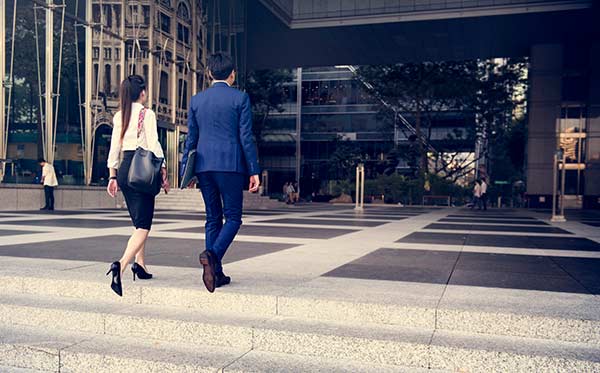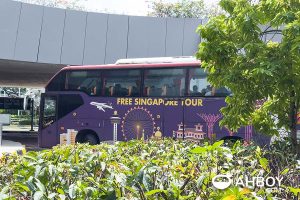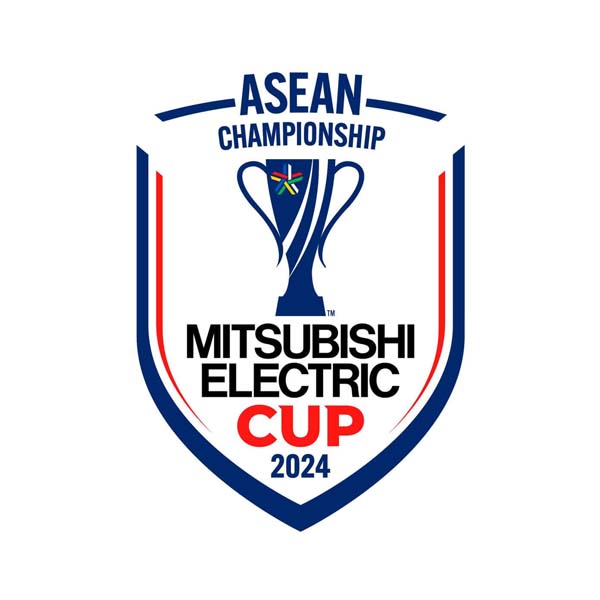What are the available COVID-19 government financial assistance schemes for businesses?
Due to the COVID-19 pandemic, Singaporeans and businesses have experienced major disruptions to their daily routines and operations. On 4 April 2020, the Singapore government ordered businesses that do not provide essential services to be closed under a series of “circuit breaker” aka CB measures to contain the spread of the virus. To cushion the impact of such disruptions on the economy, which ultimately affect business profit margins and jobs, the Finance ministry has in recent weeks introduced a series of special budgets to offer financial reliefs for Singapore residents and businesses.
While there are support for Singaporeans at large, and those specifically targeting at freelance workers, self-employed, and low income workers, our focus in this article is to summarise a list of financial assistance schemes, rebates, waivers and grants for businesses. It includes those that are recently announced in the announced Unity, Resilience, Solidarity & Fortitude Budgets 2020, Phase 2 (Heightened Alert) and Phase 3 (Heightened Alert) support measures as well as other existing schemes that may be helpful to businesses to tie over this trying period.
[Updated 18 May 2021: Phase 2 (Heightened Alert) Support – JSS extension and hawker rental waiver support for F&B industry]
[Updated 28 May 2021: Phase 2 (Heightened Alert) Support – Additional support measures to the Jobs Support Scheme (JSS) for affected sectors, rental relief for SMEs and non-profit organisations (NPOs) in commercial properties, the COVID-19 Recovery Grant (Temporary) (CRG-T), and other measures.]
[Updated 10 June 2021: Phase 3 (Heightened Alert) Support – Extension of JSS for affected sectors and COVID-19 Driver Relief Fund.
[Updated 5 July 2021: The Temporary Bridging Loan Programme (TBLP) & Enhanced EFS-Trade Loan (EFS-TL) has been extended for 6 months, from 1 April 2021 to 30 September 2021]
[Updated 23 July 2021: S$1.1 billion support package for workers, businesses hit by Phase 2 (Heightened Alert) restrictions]
[Updated 24 September 2021: S$650m support to cope with tightened Covid-19 curbs]
COVID-19 support measures for businesses
- Job Support Scheme (JSS) [Updated]
- Enhanced Wage Credit Scheme (WCS)
- SGUnited Traineeships Programme
- Property Tax Rebates 2020
- Rental Waivers for hawker centres, markets, and eligible government properties [Updated]
- Corporate Income Tax (CIT) rebate & deferment of payments
- Foreign Worker Levy (FWL) waiver & rebate
- Enterprise Financing Scheme (EFS) enhancement
- Loan Insurance Scheme (LIS) enhancement
- Temporary Bridging Loan Programme (TBLP) enhancement
- Enterprise Development Grant (EDG) & Productivity Solutions Grant (PSG) enhancement
- Jobs Growth and Incentive Programme (JGIP)
Other grants for businesses
Additional support during Phase 2 (Heightened Alert) & Phase 3 (Heightened Alert)
- Rental support for qualifying tenants of commercial properties [Updated]
- Support for the Transport Sector / COVID-19 Driver Relief Fund [Updated]
1. Job Support Scheme (JSS)
The Job Support Scheme will co-fund the first S$4,600 of gross monthly wages paid to local employees (Singaporeans and Permanent Residents) for 9 months, between October 2019 to July 2020. The co-funding value range between 25% to 75%, depending on the sector a business falls in. Aviation & Tourism sector receives 75%, Food Services sector receives 50%, while all other sectors receive 25% of the funding.
Due to “Circuit Breaker” measures announced in April, there is an exception to the funding value for the month of April 2020. All sectors will receive 75% of funding. That means, for the month of April 2020, if a local employee earns a gross wage of S$3,000, the JSS will fund S$2,250 of it. Effectively, the company only pays S$750 for this local employee’s wages.
Updated 21 Apr 2020
75% Job Support Scheme (JSS) funding across all sectors has been extended to include the month of May 2020 as Circuit Breaker is extended until 1 June 2020. The payout for May will start disbursing from end of May 2020 for employers who have PayNow Corporate account or existing GIRO arrangements with IRAS.
Note: “Employers who put local employees on mandatory no-pay-leave or retrench them will not be entitled to the enhanced JSS payout for those employees.”
Updated 26 May 2020
The Job Support Scheme (JSS) originally to last until July 2020 has been extended for an additional month to August 2020. Firms that are not allowed to resume operations after the Circuit Breaker will continue to receive support until August 2020. JSS payouts will be made in 4 tranches: April, May, July, October 2020.
More sectors have also been added to two of the three tiers of JSS:
-
- Tier 1 : 75% – Besides companies that falls into the Aviation & Tourism sector, it now includes companies offering services to this sector (e.g. training operators, maintenance operators, aerospace manufacturers etc).
- Tier 1 (only Jun to Aug 2020) : 75% – A new short term relief for built environment contractors & consultants.
- Tier 2 : 50% – Instead of just covering Food Services sector, it now includes qualifying retail outlets, cinema operators, film distributors, Arts & Culture organisations, land transport operators, and offshore & marine.
Updated 17 August 2020
The Job Support Scheme (JSS) that was supposed to end after Aug 2020 has now been extended. Depending on sector, businesses will receive varying percentage of co-funding and extended period from Sep 2020 onward.
-
- Aviation, aerospace, and tourism sectors: 50% JSS support until Mar 2021
- Built environment sector: 50% JSS support for Sep & Oct 2020; before lowering to 30% for wages paid up to Mar 2021
- Arts & entertainment, food services, land transport, marine & offshore, and retail sectors: 30% JSS support until Mar 2021
- Sectors that are managing well, such as biomedical sciences, financial services, and ICT: 10% JSS support until Dec 2020
- Remaining sectors: 10% support until Mar 2021
Updated 18 May 2021
Following the implementation of Phase 2 (Heightened Alerts) measures between 16 May and 13 Jun 2021, Food & Beverage (F&B) establishments will receive 50% Job Support Scheme (JSS) support during this period. This is an increase from the 10% support for wages paid up to June 2021. To qualify for the support, such food shops, food stalls, and hawker stalls must be classified under SSICs 56 or 68104 in their business registration. Licensees registered as individuals will also be included if they make mandatory CPF contributions for their employees.
Updated 28 May 2021
The government will enhance the JSS to provide support to sectors that have been significantly affected by the tightened measures between 16 May and 13 Jun 2021, other than just F&B industry. Affected gyms, fitness studios, performing arts organisations, and arts education centres will similarly receive 50% JSS support. However, the JSS support will replace the operating grant for gyms and fitness studios under the Sports Resilience Package (SRP) announced by Ministry of Community, Culture and Youth earlier.
Businesses in the retail sector, affected personal care services, museums, art galleries, historical sites, cinemas, indoor playgrounds and other family entertainment centres will receive 30% JSS support. Some retailers like supermarkets, convenience stores and online retailers will not be eligible for the enhanced support.
Any other businesses that are significantly affected by the tightened measures in P2(HA) and would like to appeal for enhanced JSS support may do so at https://go.gov.sg/jss
Updated 10 June 2021
The 50% JSS announced in May will be extended until 20 June 2021 for affected sectors. From 21 to 30 June, the affected sectors will receive 10% JSS support.
Updated 23 July 2021
The government announced a new round of support following the reversion to Phase 2 (Heightened Alert) from 22 July 2021 to 18 August 2021.
- 22 July – 18 August 2021
- F&B, Gym & Fitness Studios, Performing Arts & Arts Education: 60% JSS support
- Retail (except Supermarkets, convenience stores, and online retailers), Cinemas, Tourism, Affected personal care services, family entertainment, Museums/art galleries & historical sites: 40% JSS support
- 19 August – 31 August 2021
- F&B, Gym & Fitness Studios, Performing Arts & Arts Education: 10% JSS support
- Retail (except Supermarkets, convenience stores, and online retailers), Cinemas, Tourism, Affected personal care services, family entertainment, Museums/art galleries & historical sites: 10% JSS support
Updated 24 September 2021
- 27 September – 24 October 2021
- F&B, Gym & Fitness Studios, Performing Arts & Arts Education: 25% JSS support
- Retail (except Supermarkets, convenience stores, and online retailers), Cinemas, Tourism, Affected personal care services, family entertainment, Museums/art galleries & historical sites: 25% JSS support
How do I apply for the Job Support Scheme (JSS)?
The Job Support Scheme requires no application. IRAS will base on a company’s contribution to the Central Provident Fund (CPF) to notify eligible employers by post on the quantum payable to them. The first payout has already began on 15 April 2020. Details, eligibility criteria, and illustrations of the JSS can be found on IRAS’s page.
Who are excluded from the Job Support Scheme (JSS)?
- Sole proprietor of a sole proprietorship
- Partners of a partnership (including general partnerships, limited liability partnerships and limited partnerships)
- Employees who are both shareholders and directors (as defined in Section 4(1) of the Companies Act) of the company, or employees who are both members and Directors in the case of a Company Limited by Guarantee (CLG); and
Updated 21 Apr 2020
Employees who are both directors and shareholders (shareholder-directors) will now be included in the Job Support Scheme (JSS). This inclusion will be applicable to
- companies registered on or before 20 April 2020.
- shareholder-directors with Assessable Income of S$100,000 or less in Year of Assessment YA 2019.
This will commence from May 2020 onward and for subsequent JSS payments. The payout for May 2020 will also include back-payment for such employees whose wages were excluded in the first JSS payout in April 2020. In summary, shareholder-directors will get support of 75% of wages for April and May 2020, and then 25%-75% depending on which sector the shareholder-directors fall in for the remaining months till the JSS ends.
- Employers trading in their own personal capacity include but are not limited to hawkers who do not have UEN, employers hiring local personal drivers or local domestic helpers, etc.
What types of organisations are excluded the from Job Support Scheme (JSS)?
- Local Government Agencies including Organs of State, Ministries and Departments, Statutory Boards
- Government and Government-Aided Schools
- PA Services and Grassroot Units
- High Commissions, Embassies, Trade Offices, Consulate
- Unregistered Local/Foreign Entities
- Foreign Military Units
- Representative offices of: Foreign companies, Foreign Government Agencies, Foreign Trade Associations/ Foreign Chambers/ Foreign Non-profit Organisations, Foreign Law Practices
- Bank Representative Offices/Insurance Representative Officers/Other Financial Representative Offices (registered with MAS)
- News Bureaus (which are representative offices)
- International Organisations
- Entities which pay CPF but are not registered in Singapore
2. Enhanced Wage Credit Scheme (WCS)
The Wage Credit Scheme (WCS) has been in existence since Budget 2013 where the government will co-fund wage increments companies offer to their Singaporean employees. In the enhanced WCS, the funding quantum has been adjusted to 20% for qualifying wage increase in 2019, and 15% for qualifying wage increase in 2020. The cap on the employee’s wage is now S$5,000.
For example, if a company had raised the wages of an employee by S$500 a month in 2019 and the final wage is within the S$5,000, S$100 a month of that increment is being co-funded by the government.
How do I apply for the enhanced Wage Credit Scheme (WCS)?
The enhanced Wage Credit Scheme requires no application. Payouts are made automatically and companies will be informed if they will receive additional payouts by September 2020 with the “enhancements” announced in the recent budgets. Details, eligibility criteria and illustrations can be on IRAS’s page.
3. SGUnited Traineeships Programme
SGUnited Traineeships Programme is an initiative to help up to 8,000 first-time job seekers get employed amidst this difficult time. Those who have just graduated or are graduating in 2020 from ITE, polytechnics, universities and other educational institutions will be supported by this scheme. While in the programme, these fresh graduates will be employed as trainees in both large and small enterprises and part of their wages will be co-funded by the government.
On 24 Apr 2020, Workforce Singapore (WSG) released more details on the programme. Trainees in this programme must be:
- Singaporeans or Permanent Residents, and
- Graduated or graduating in calendar year 2019 or 2020 from ITEs, polytechnics, universities, or other educational institutions (e.g. private universities and overseas institutions), or graduated earlier and completed National Service in 2019 or 2020.
The Government will co-fund 80% of the traineeship allowance. Under this scheme, there is no employer-employee relationship between a company and a trainee, and as such, no CPF contributions are required.
The estimated traineeship allowances based on 50-70% of median starting salaries are as follow:
- ITE or equivalent: S$1,100 – S$1,500
- Polytechnic or professional qualifications: S$1,300 – S$1,800
- University degree or above: S$1,800 – S$2,500
What are the eligibility criteria for companies to participate in this programme?
- Participating companies must be registered or incorporated in Singapore
- Offer traineeships lasting up to 12 months (Traineeship must commence by 31st December 2020)
- Provide clear Traineeship Descriptions and Development Plans that would provide trainees with meaningful developmental opportunities during the traineeship period, subject to approval by the appointed programme manager, Singapore Business Federation(SBF)
- Co-fund 20% of the training allowance for the duration of the traineeship
The SGUnited Traineeships Programme will commence from 01 June 2020. Companies who are keen to participate in the programme may complete this interest form, and SBF will liaise with the companies on the application process.
Updated 26 May 2020
Expanding on the original traineeship programme for fresh graduates, it now evolves into a “SGUnited Jobs and Skills Package” that includes traineeships for mid-career professionals as well as creation of jobs in both public and private sectors. The number of participants for the SGUnited traineeship for fresh graduates will increase to 21,000, while the entire package of traineeships and jobs is estimated to benefit 95,000 local residents or more.
4. Property Tax Rebates 2020
The majority of non-residential properties will receive between 30% to 100% property tax rebate in 2020. Laws are also passed to ensure landlords pass this tax savings to tenants.
Commercial and Industrial Properties (Non-Residential) are currently taxed at 10% of Annual Value. By IRAS’s definition, Annual Value of a property is the estimated gross annual rent that can be collected if it is rented out, excluding furniture, maintenance costs. As such, when a landlord receives 100% property tax rebate, the quantum is slightly more than 1 month of rent, while the quantum is only slightly more than 0.3 month of rent for those receiving 30% tax rebate.
Who will receive 100% property tax rebate?
The tourism, F&B, and retail sectors will receive 100% property tax rebate:
- Hotel room or function room of a hotel registered under the Hotels Act (“registered hotel”);
- Serviced apartment or serviced apartment function room;
- Premises of prescribed Meetings, Incentive Travel, Conventions and Exhibitions (MICE) venues, namely Suntec Singapore Convention and Exhibition Centre, Singapore EXPO, and Changi Exhibition Centre;
- Premises of an international airport i.e. Singapore Changi Airport;
- Premises of a prescribed international cruise or regional ferry terminal. The prescribed cruise and ferry terminals are Singapore Cruise Centre, Marina Bay Cruise Centre Singapore and Tanah Merah Ferry Terminal;
- Shops (e.g. retail) and restaurants, including those within hotels, serviced apartments, the prescribed MICE venues under Item 3 as well as those in office, industrial, residential and mixed-use developments; and
- Premises of tourist attractions (e.g. Singapore Zoological Gardens, Singapore Flyer and Haw Par Villa).
Marina Bay Sands and Resort World Sentosa will receive 60% property tax rebate, while the remaining non-residential properties will receive 30% property tax rebate.
Updated 26 May 2020
A new government cash grant has been added to benefit SME tenants in private properties. SMEs who are eligible for 100% property tax rebate earlier will be given an additional cash grant of about 0.8 month, while SMEs who are eligible for 30% property tax rebate will be given an additional cash grant of 0.64 month. The grants will be disbursed from end July to property owners and it is mandatory that landlords pass on the reliefs to tenants.
How do I apply for the Property Tax Rebates 2020?
The Property Tax Rebates 2020 requires no application. IRAS will inform owners of qualifying properties by 31 May 2020, and they can expect the refund by 30 June 2020.
5. Rental Waivers for hawker centres, markets, and eligible government properties
- Stallholders of hawker centres and markets will get three months rental waiver, with a minimum waiver of S$200 per month.
- Commercial tenants/lessees at government properties including those providing commercial accommodation,
retail, F&B, recreation, entertainment, healthcare, and other services will get two months rental waiver. - Other non-residential tenants who do not pay property tax will get half a month of rental waiver. Waivers will be provided by government agencies including JTC, SLA, HDB, URA, BCA, NParks, and PA.
Tenants who receive these waivers are strongly encouraged to pass on the benefits to sub-tenants. Source
Updated 26 May 2020
- Stallholders of hawker centres and markets who qualified for three months rental waiver will now get an additional two months of rental waiver (totaling 5 months).
- Commercial tenants/lesees who qualified for two months rental waiver will now get an additional two months of rental waiver (totaling 4 months).
- Other qualifying non-residential tenants will now receive a total of 2 months rental waiver.
Updated 18 May 2021
To support hawkers and coffeeshop stallholders, who are self-employed and do not benefit from the JSS, the Government will provide one month of rental waiver for hawker stall and coffeeshop tenants of Government agencies. Commercial landlords are urged to support their F&B tenants through this period.
Updated 28 May 2021
As announced by the Ministry of Sustainability and the Environment on 22 May 2021, 100% of fees for table-cleaning and centralised dishwashing services for around 6,000 cooked food stallholders in hawker centres managed by the National Environment Agency (NEA) or NEA-appointed operators during the no dine-in period will be subsidised.
Other than hawkers centres and coffee shops announced on 18 May 2021, the Government will now grant one month of rental relief for qualifying tenants of Government-owned commercial properties (a lease or license entered into before 14 May 2021). Tenants will be required to pass down the rental relief received to qualifying sub-tenants, if any.
Updated 23 July 2021
- Additional 4-week rental waiver for qualifying tenants on Government-owned commercial properties.
- One-off cash assistance of $500 per stallholder of market and hawker stalls in centres managed by NEA or NEA-appointed operators.
Updated 24 September 2021
- Additional 2-week rental waiver for qualifying tenants on Government-owned commercial properties.
6. Corporate Income Tax (CIT) rebate & deferment of payments
25% corporate income tax rebate, capped at $15,000, for Year of Assessment 2020 was announced in Budget 2020. In the subsequent supplementary budget, tax due between April to June 2020 has been deferred to July to September 2020 to help companies ease their cash flow.
How do I apply for the CIT rebate & deferment of CIT payments?
There is no application needed for the income tax rebate as it will be computed automatically as filing is made. As for the deferment of tax payments, the due dates are extended automatically. For companies that do not wish to enjoy the deferment, they may email IRAS.
7. Foreign Worker Levy (FWL) waiver & rebate
March 2020’s Foreign Worker Levy (FWL) that will be due in April 2020 is waived. On top of that, employers will also receive a one-time FWL rebate of S$750 for each work permit or S Pass holder to cover levies paid in 2020. Eligible employers will receive the rebate as early as 21 April 2020 if they have PayNow Corporate account. For employers without PayNow, the rebate will be disbursed via cheque from 15 May 2020.
Updated 21 Apr 2020
Foreign Worker Levy (FWL) waiver & rebate will be extended to cover the month of May 2020 as Circuit Breaker is extended until 1 June 2020. FWL for May 2020 is waived, and additional month of FWL rebate of S$750 for May 2020 will be given to eligible companies. This is to support companies with workers who are unable to work due to the circuit breaker and/or Stay Home Notices (SHNs).
Updated 26 May 2020
100% FWL waiver will be extended to June 2020, while 50% FWL waiver will be applied to July 2020. The FWL rebates will be S$750 for June 2020 and S$375 for July 2020.
How do I apply for Foreign Worker Levy (FWL) waiver & rebate?
No application is required to receive the rebate. However, the eligibility criterion is that the company must have paid at least one month of levy due in 2020.
Companies can check on their eligibility and amount of rebate they will receive on MOM’s page. More details on FWL waiver as well as new rules on Quarantine Orders (QO) or Stay-Home Notice (SHN) can be found on MOM’s announcement here (point 16-20).
8. Enterprise Financing Scheme (EFS) enhancement
Enterprising Financing Scheme is a consolidation of 6 financing schemes since 29 October 2019. The objective of this scheme is to “enable Singapore enterprises to access financing more readily throughout various stages of growth”.
The following are the 6 schemes, in which 2 of them are enhanced with the recently announced Solidarity Budget 2020:
- SME Working Capital Loan (Enhanced with Solidarity Budget 2020)
- SME Fixed Assets Loans
- Venture Debt Loan
- Trade Loan (Enhanced with Solidarity Budget 2020)
- Project Loan
- Mergers & Acquisitions Loan
For the SME Working Capital Loan, the maximum loan quantum was raised from S$300,000 to S$1 million. Risk-share by the government was also increased to 90% (from 50% and 70% for young companies previously) for new applications initiated from 8 April 2020 until 31 March 2021.
For the Trade Loan, the maximum loan quantum was raised from S$5 million to S$10 million. The risk-share by the government was also increased to 90% (from 50% and 70% for young companies previously) for new applications initiated from 8 April 2020 until 31 March 2021.
These enhancements will make it easier for companies to get loans from participating Financial Institutions as the government increased the co-share of the risks involved. Click on the list above to learn more about each of the schemes.
Updated 31 March 2021
The Enhanced EFS-Trade Loan (EFS-TL) has been extended for 6 months, from 1 April 2021 to 30 September 2021, with the parameters listed below:
-
- MAXIMUM LOAN QUANTUM – S$10 Million / borrower
- MAXIMUM REPAYMENT PERIOD – 1 year
- RISK-SHARE – Government risk share is at 70%
- INTEREST RATE – Subject to PFIs’ assessment of risks involved.
Updated 5 July 2021
The Enhanced EFS-Trade Loan (EFS-TL) has been further extended for 6 months, from 1 October 2021 to 31 March 2021. The parameters will remained unchanged from March’s announcement.
9. Loan Insurance Scheme (LIS) enhancement
Companies can apply for the Loan Insurance Scheme (LIS) to secure short-term trade financing for the following purposes:
- Inventory/ stock financing facility
- Structured pre-delivery working capital
- Factoring/ bill or invoice or accounts receivable discounting with recourse
- Overseas Working Capital Loan
- Banker’s Guarantee
With the announcement of the Solidarity Budget 2020, subsidy on the premium of the LIS increased from 50% to 80%. Eligibility criteria, application, and FAQs on the LIS can be found here.
10. Temporary Bridging Loan Programme (TBLP) enhancement
The Temporary Bridging Loan Programme (TBLP) is a new scheme that started in March 2020 that covers all sectors. It offers a longer term and larger quantum working capital loan to businesses. The maximum loan quantum is S$5 million, with a maximum repayment period of 5 years and a capped interest rate at 5% per annum. The government will provide 90% risk-share with participating Financial Institutions for new applications initiated from 8 April until 31 March 2021. Eligibility criteria and FAQs on TBLP can be found here.
Updated 31 March 2021
The Temporary Bridging Loan Programme (TBLP) has been extended for 6 months, from 1 April 2021 to 30 September 2021, with the parameters listed below:
-
- MAXIMUM LOAN QUANTUM – S$3 Million / borrower
- MAXIMUM REPAYMENT PERIOD – 5 years
- RISK-SHARE – Government risk share is at 70%
- INTEREST RATE – Capped at 5% p.a.
Updated 5 July 2021
The Temporary Bridging Loan Programme (TBLP) has been further extended for 6 months, from 1 October 2021 to 31 March 2021. The parameters will remained unchanged from March’s announcement.
11. Enterprise Development Grant (EDG) & Productivity Development Grant (PSG) enhancement
The Enterprise Development Grant (EDG) helps Singapore companies grow and transform. This grant supports projects that help companies upgrade their businesses, innovate or venture overseas. It covers costs relating to third-party consultancy fees, software costs, equipment, and internal manpower cost. While this grant has been in existence for some time, the maximum funding support has now been increased from 70% to 80% for applications between 1 April 2020 and 31 December 2020. Eligibility criteria, application process, and FAQs about the grant can be found here.
The Productivity Solutions Grant (PSG) supports companies keen on adopting IT solutions and equipment to enhance business processes. It covers sector-specific solutions including the retail, food, logistics, precision engineering, construction and landscaping industries for now. While this grant has also existed for years, its scope has now expanded to include solutions that implement COVID-19 business continuity measures:
- Online collaboration tools
- Virtual meeting and telephony tools
- Queue management systems
- Temperature screening solutions
- Laptop-bundled remote working solutions (Office 365)
The full list of solutions supported by PSG can be found on TechDepot. Similar to the EDG, the maximum funding support for PSG has now been increased from 70% to 80% for applications between 1 April 2020 and 31 December 2020. Eligibility criteria, application process, and FAQs about the grant can be found here.
12. Jobs Growth and Incentive Programme (JGIP)
S$1 billion has been allocated to the Jobs Growth and Incentive Programme (JGIP). The objective of this programme is to support hiring in growing areas, to create new jobs for workers, with a special focus on mature workers.
The programme will support firms to increase their total headcount of local workers over the next six months:
- For all new local hires, the Government will co-pay up to 25% of their salaries, subject to a cap.
- For workers aged 40 and above, the Government will co-pay up to 50% of their salaries.
More details will be announced by the Ministry of Manpower by the end of the August 2020.
[Others] E-invoicing Registration Grant
The E-invoicing registration grant is a new scheme from IMDA in partnership with ESG to help businesses to digitalise their invoicing processes and ultimately enable finance staff to work remotely, improve productivity and reduce cost. All companies have to do to receive S$200 is to register to the Nationalwide E-Invoicing Network!
How do I apply for the E-Invoicing registration grant?
There is no application needed for the grant. A S$200 one-time grant per UEN (company registration number) is automatically given to companies via PayNow who register to the E-Invoicing Network by 31 December 2020. The grant is only applicable to companies who are active and registered in Singapore before 25 March 2020.
[Others] Work-Life Grant (WLG)
The Work-life grant (WLF) is an initiative by the Ministry of Manpower to promote flexible work arrangements (FWA) for employees working on regular basis (i.e. not ad-hoc or casual employees). There are two components to this grant:
- FWA Incentive: This incentive supports employees who adopt FWA daily for at least 1 month. The grant covers S$2,000 per local employee per year, up to S$70,000 per company over 2 years.
- Job Sharing Incentive: Job sharing is where two or more people share responsibilities of one-full time job. This incentive supports PMET-level full-time employees (or employee with at least 12 months contract term) who adopt job sharing arrangements. The grant covers S$3,500 per local, full-time PMET employee per year, up to $35,000 per company over 2 years.
Since we are in the midst of CB, it is highly likely that many businesses are eligible for these grants as FWAs are being practiced. Check out more details on the requirements and application process on MOM’s page.
a. Rental support for qualifying tenants of commercial properties [New]
To provide additional support, the Inland Revenue Authority of Singapore (IRAS) will disburse a 0.5-month rental relief cash payout directly to qualifying tenants (tenants who has a lease or license entered into before 14 May 2021) as part of a new Rental Support Scheme . The payout will be disbursed starting from mid-August 2021 and computed based on the latest contractual gross rent within the period 14 May 2021 to 29 May 2021.
Updated 23 July 2021
- Additional 2-week rental relief cash payout for privately-owned commercial properties.
- To ensure fair burden-sharing, the Government is looking to require sharing of rental obligations between the Government, landlords and qualifying tenants..
Updated 24 September 2021
- Additional 2-week rental relief cash payout for privately-owned commercial properties.
Separately, property owners who run an SME business or an eligible Non-Profit Organisations (NPOs) on their own qualifying commercial property will also be eligible for the cash payout, computed based on the Annual Value of the property (or part of) for Year 2021 as at 14 May 2021.
Most qualifying tenants and owner-occupiers will receive the cash payout automatically without needing to submit an application. The cash payout will not be disbursed automatically to tenants who only rent part of a property, or to tenants who rent a mixed-use property (e.g. a shophouse for both retail and residential use), and/or to licensees. Such businesses should submit an application to IRAS, and provide supporting documents. IRAS will provide more details of the Rental Support Scheme and application process on its website by mid-June 2021.
b. Support for the Transport Sector / COVID-19 Driver Relief Fund [New]
As announced by the Ministry of Transport on 21 May 2021, the Government has enhanced the COVID-19 Driver Relief Fund payout to taxi and private hire car drivers from 16 May 2021 to 30 June 2021, from $450/month/vehicle to $750/month/vehicle, in view of the expected fall in ridership under P2(HA).
On 24 May 2021, Changi Airport Group also announced that retailers in Changi Airport terminals would have their rental fees fully waived for the period of closure, from 13 May 2021 until 13 June 2021.
Updated 10 June 2021
The Government will extend the COVID-19 Driver Relief Fund for another three months at $300 per month per vehicle for July and August 2021, and $150 per month per vehicle for September 2021.
Updated 23 July 2021
Enhancement of COVID-19 Driver Relief Fund with an additional:
– $10/vehicle/day from 22 July to 31 August 2021
– $5/vehicle/day in September 2021
Updated 24 September 2021
Enhancement of COVID-19 Driver Relief Fund with an additional:
– $10/vehicle/day in October 2021
– $5/vehicle/day in November 2021

















